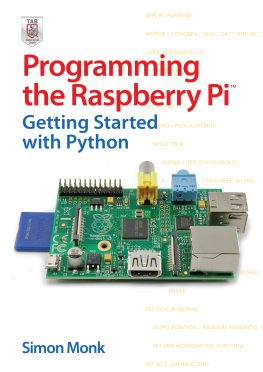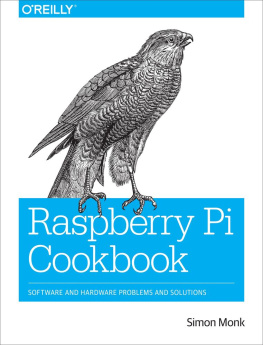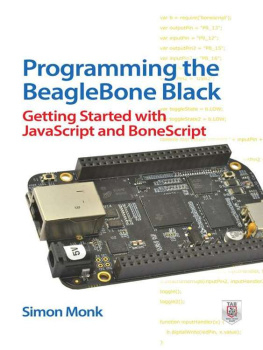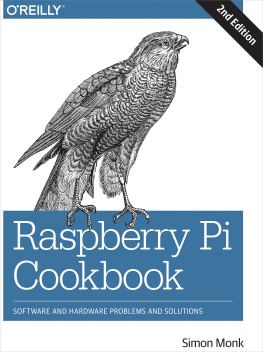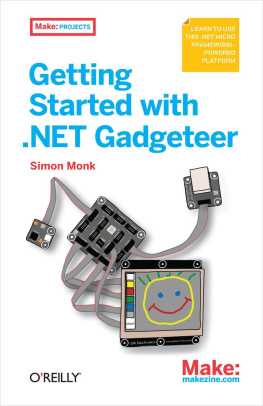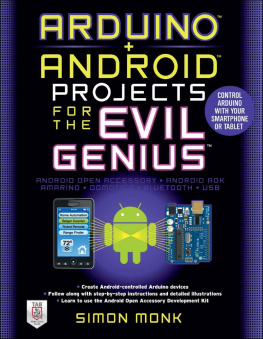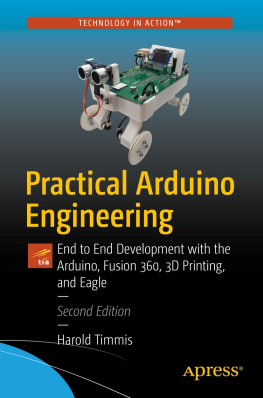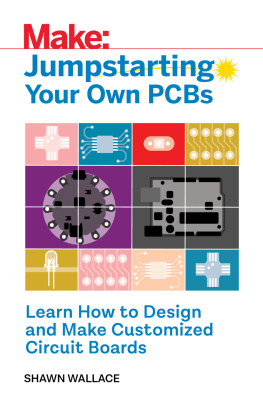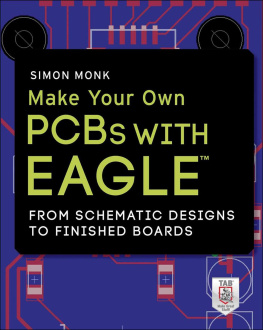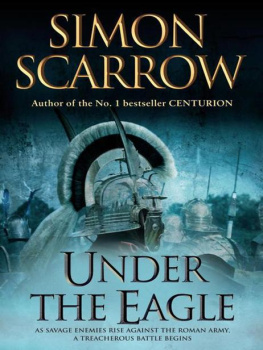Simon Monk - Make Your Own PCBs with EAGLE
Here you can read online Simon Monk - Make Your Own PCBs with EAGLE full text of the book (entire story) in english for free. Download pdf and epub, get meaning, cover and reviews about this ebook. year: 2017, publisher: McGraw-Hill Education, genre: Home and family. Description of the work, (preface) as well as reviews are available. Best literature library LitArk.com created for fans of good reading and offers a wide selection of genres:
Romance novel
Science fiction
Adventure
Detective
Science
History
Home and family
Prose
Art
Politics
Computer
Non-fiction
Religion
Business
Children
Humor
Choose a favorite category and find really read worthwhile books. Enjoy immersion in the world of imagination, feel the emotions of the characters or learn something new for yourself, make an fascinating discovery.

- Book:Make Your Own PCBs with EAGLE
- Author:
- Publisher:McGraw-Hill Education
- Genre:
- Year:2017
- Rating:3 / 5
- Favourites:Add to favourites
- Your mark:
- 60
- 1
- 2
- 3
- 4
- 5
Make Your Own PCBs with EAGLE: summary, description and annotation
We offer to read an annotation, description, summary or preface (depends on what the author of the book "Make Your Own PCBs with EAGLE" wrote himself). If you haven't found the necessary information about the book — write in the comments, we will try to find it.
Make Your Own PCBs with EAGLE — read online for free the complete book (whole text) full work
Below is the text of the book, divided by pages. System saving the place of the last page read, allows you to conveniently read the book "Make Your Own PCBs with EAGLE" online for free, without having to search again every time where you left off. Put a bookmark, and you can go to the page where you finished reading at any time.
Font size:
Interval:
Bookmark:
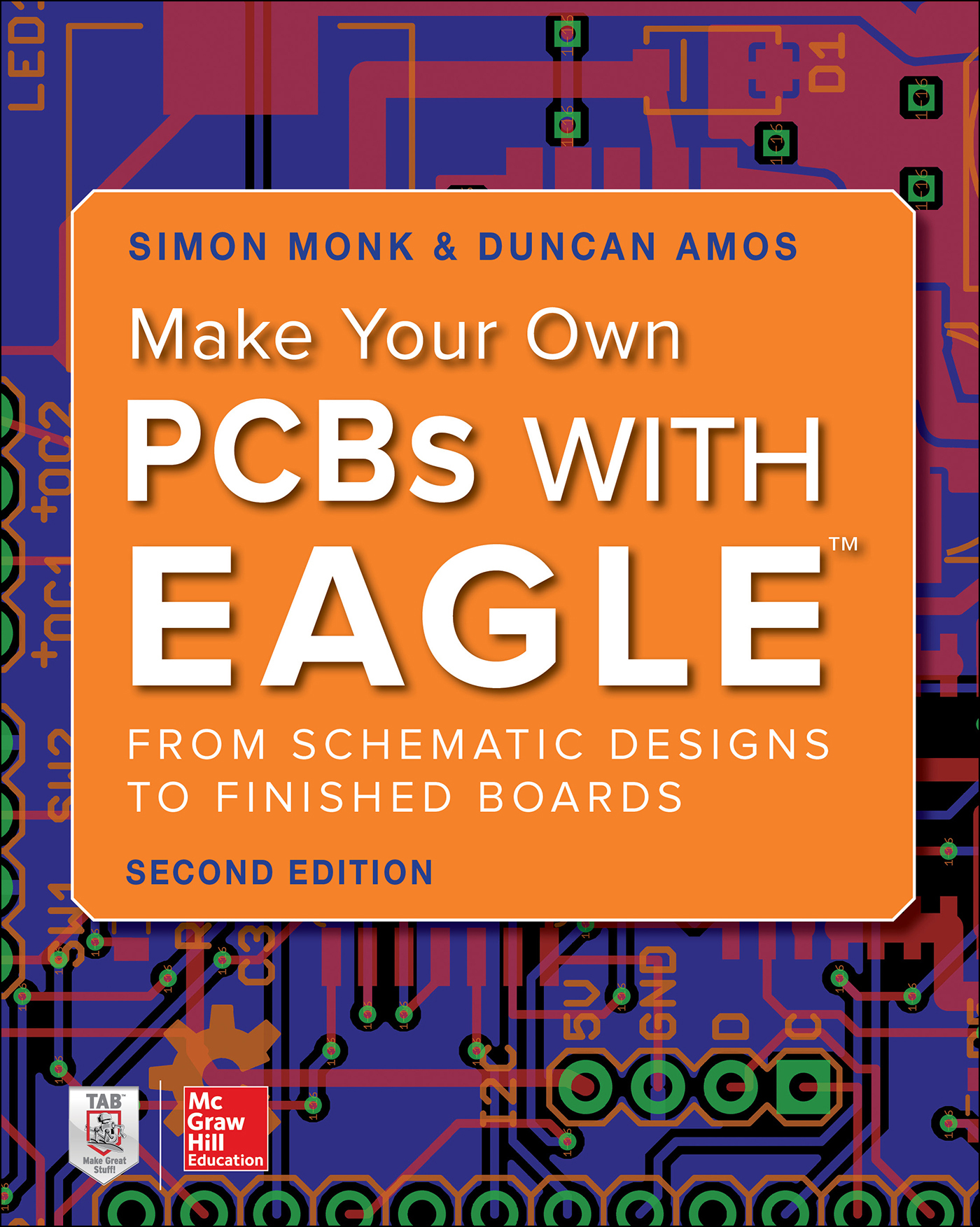

Copyright 2017 by McGraw-Hill Education. All rights reserved. Except as permitted under the United States Copyright Act of 1976, no part of this publication may be reproduced or distributed in any form or by any means, or stored in a database or retrieval system, without the prior written permission of the publisher.
ISBN: 978-1-26-001920-9
MHID: 1-26-001920-9.
The material in this eBook also appears in the print version of this title: ISBN: 978-1-26-001919-3, MHID: 1-26-001919-5.
eBook conversion by codeMantra
Version 1.0
All trademarks are trademarks of their respective owners. Rather than put a trademark symbol after every occurrence of a trademarked name, we use names in an editorial fashion only, and to the benefit of the trademark owner, with no intention of infringement of the trademark. Where such designations appear in this book, they have been printed with initial caps.
McGraw-Hill Education eBooks are available at special quantity discounts to use as premiums and sales promotions or for use in corporate training programs. To contact a representative, please visit the Contact Us page at www.mhprofessional.com.
McGraw-Hill Education, the McGraw-Hill Education logo, TAB, and related trade dress are trademarks or registered trademarks of McGraw-Hill Education and/or its affiliates in the United States and other countries and may not be used without written permission. All other trademarks are the property of their respective owners. McGraw-Hill Education is not associated with any product or vendor mentioned in this book.
Information contained in this work has been obtained by McGraw-Hill Education from sources believed to be reliable. However, neither McGraw-Hill Education nor its authors guarantee the accuracy or completeness of any information published herein, and neither McGraw-Hill Education nor its authors shall be responsible for any errors, omissions, or damages arising out of use of this information. This work is published with the understanding that McGraw-Hill Education and its authors are supplying information but are not attempting to render engineering or other professional services. If such services are required, the assistance of an appropriate professional should be sought.
TERMS OF USE
This is a copyrighted work and McGraw-Hill Education and its licensors reserve all rights in and to the work. Use of this work is subject to these terms. Except as permitted under the Copyright Act of 1976 and the right to store and retrieve one copy of the work, you may not decompile, disassemble, reverse engineer, reproduce, modify, create derivative works based upon, transmit, distribute, disseminate, sell, publish or sublicense the work or any part of it without McGraw-Hill Educations prior consent. You may use the work for your own noncommercial and personal use; any other use of the work is strictly prohibited. Your right to use the work may be terminated if you fail to comply with these terms.
THE WORK IS PROVIDED AS IS. McGRAW-HILL EDUCATION AND ITS LICENSORS MAKE NO GUARANTEES OR WARRANTIES AS TO THE ACCURACY, ADEQUACY OR COMPLETENESS OF OR RESULTS TO BE OBTAINED FROM USING THE WORK, INCLUDING ANY INFORMATION THAT CAN BE ACCESSED THROUGH THE WORK VIA HYPERLINK OR OTHERWISE, AND EXPRESSLY DISCLAIM ANY WARRANTY, EXPRESS OR IMPLIED, INCLUDING BUT NOT LIMITED TO IMPLIED WARRANTIES OF MERCHANTABILITY OR FITNESS FOR A PARTICULAR PURPOSE. McGraw-Hill Education and its licensors do not warrant or guarantee that the functions contained in the work will meet your requirements or that its operation will be uninterrupted or error free. Neither McGraw-Hill Education nor its licensors shall be liable to you or anyone else for any inaccuracy, error or omission, regardless of cause, in the work or for any damages resulting therefrom. McGraw-Hill Education has no responsibility for the content of any information accessed through the work. Under no circumstances shall McGraw-Hill Education and/or its licensors be liable for any indirect, incidental, special, punitive, consequential or similar damages that result from the use of or inability to use the work, even if any of them has been advised of the possibility of such damages. This limitation of liability shall apply to any claim or cause whatsoever whether such claim or cause arises in contract, tort or otherwise.
Dr. Simon Monk (Preston, UK) has a degree in cybernetics and computer science and a Ph.D. in software engineering. He spent several years as an academic before he returned to industry, co-founding the mobile software company Momote Ltd. He has been an active electronics hobbyist since his early teens and is a full-time writer on hobby electronics and open-source hardware. Dr. Monk is the author of numerous electronics books, specializing in open-source hardware platforms, especially Arduino and Raspberry Pi. He is also co-author with Paul Scherz of Practical Electronics for Inventors, Third Edition.
You can follow him on Twitter, where he is @simonmonk2.
Duncan Amos (Catalunya, Spain) built his first crystal set at age nine, attended a school that offered an electronics class (very rare when transistors cost a small fortune and were supplied in individual boxes, packed in a cotton ball), took holiday jobs in the fledgling UK computer industry and began full-time employment as an apprentice in a company that produced TV broadcast equipment. He has been involved with producing printed circuit boards for almost 50 years and has straddled many industries from environmental monitoring to aerospaceseveral of his PCBs are in earth orbit and continue to function after more than 25 years in that harsh environment. Although officially retired, he continues to produce PCBs and electronic designs for non-profit groups, small companies and start-ups, and regularly performs technical reviews of books on electronics.
S ince this book was first published, EAGLE has undergone several version upgrades. The first edition was based on EAGLE v6.3.0, and within the version 6 iterations up to v6.6.0, the changes were mainly the usual mix of bug fixes and relatively minor improvements, although several were very welcome. All the version 6 iterations use a new data structure and came with this warning:
WARNING: The data structure in this version is completely different from that in older versions! Once you edit a file with version 6.x you will no longer be able to edit it with versions prior to 6.0!
PLEASE MAKE BACKUP COPIES OF YOUR CURRENT BOARD, SCHEMATIC AND LIBRARY FILES BEFORE EDITING THEM WITH VERSION 6!
In July 2014, CadSoft launched EAGLE v7.0.0, which was a significant upgrade to the previous v6.6.0.
Many things changed in v7.0.0 including a new icon set; changes to the licensing; and the ability, with the free version, to have two schematic sheets linked to a PCBa list of the major items can be found at https://www.element14.com/community/thread/36503/l/eagle-version-70-released. v7.0.0 also came with a warning:
Update from Version 6 to Version 7
If a version 6 drawing is edited in version 7 and the new autorouter or hierarchical design are not used, the drawing remains down compatible to version 6. If these features are used this compatibility can get lost once a drawing is saved. For this we recommend to make backup copies before editing version 6 drawing files in version 7.
Font size:
Interval:
Bookmark:
Similar books «Make Your Own PCBs with EAGLE»
Look at similar books to Make Your Own PCBs with EAGLE. We have selected literature similar in name and meaning in the hope of providing readers with more options to find new, interesting, not yet read works.
Discussion, reviews of the book Make Your Own PCBs with EAGLE and just readers' own opinions. Leave your comments, write what you think about the work, its meaning or the main characters. Specify what exactly you liked and what you didn't like, and why you think so.

